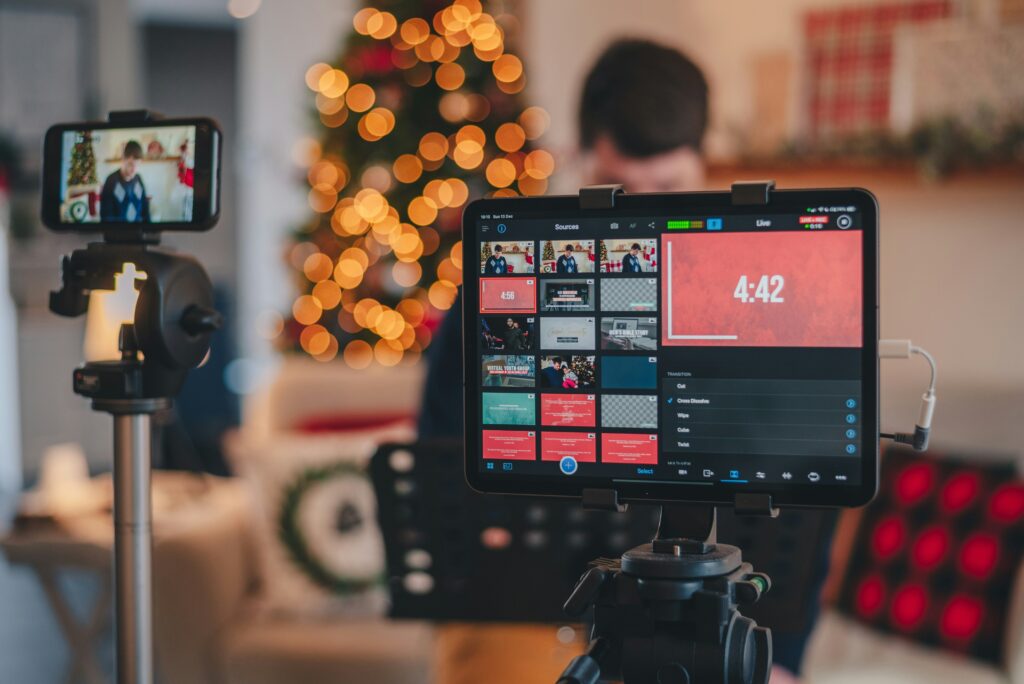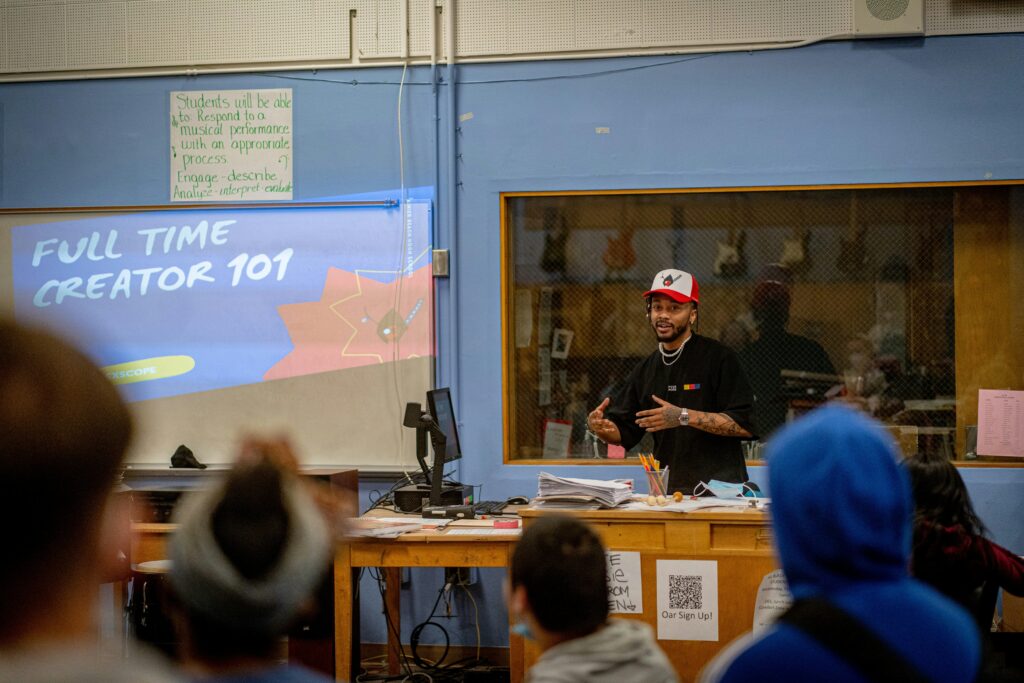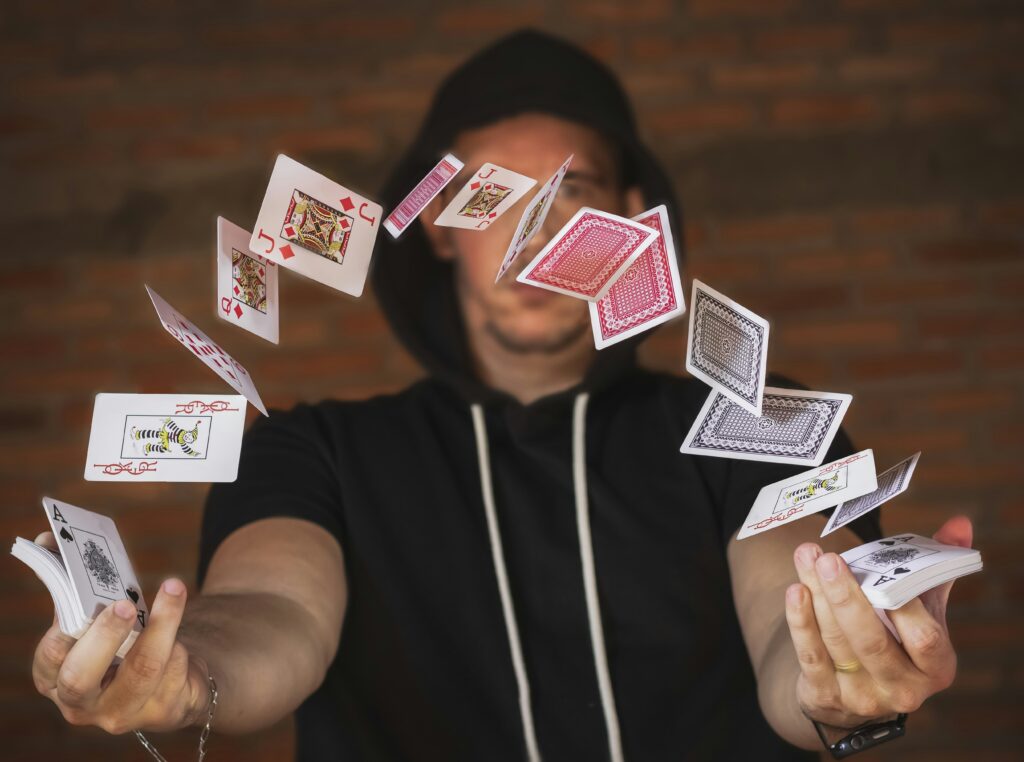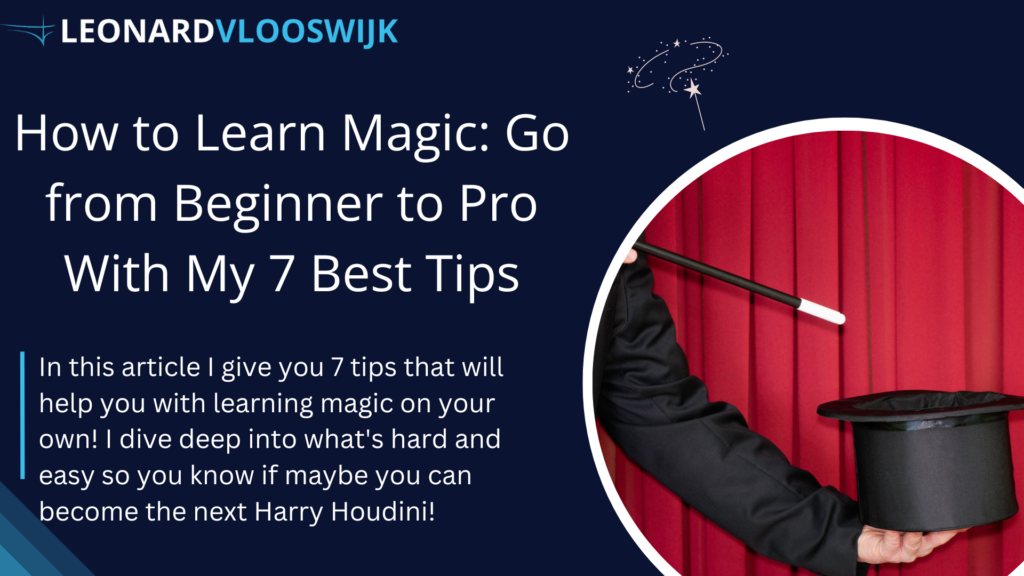Hi there! Welcome to my beginner’s guide on how to learn magic! If you’ve ever been curious about the tricks and illusions that magicians perform, you’re in the right place.
In this how to learn magic guide, we’ll explore the world of magic and share practical tips, helpful advice, and resources to help you get started on your magical journey.
Whether you’re just starting out or looking to improve your skills, we’re here to help you learn the basics of magic in a fun and easy way.
So, let’s uncover the secrets of magic together and discover how you can become a magician!
Let’s get it guys!
First Things First: Where Do You Learn Magic From?
Before we start, it’s important to know where to find the best ways to learn. In this part of our how to learn magic guide, we’ll explore the different places where you can begin your magical journey.
1. Books: Learn from the Experts

One great way to learn magic is by reading books. Magic books have been around for a long time and are filled with helpful tips and instructions from experienced magicians. Whether you’re just starting out or have some experience, magic books have a lot of useful information for everyone.
There are many different magic books available, from classic ones by famous magicians like Jean Hugard and Harry Lorayne to newer ones by today’s magicians. You can find books that cover all sorts of magic tricks and techniques. So, grab a magic book and start learning!
2. Courses: Learn Online
Nowadays, you can also learn magic online. Platforms like Udemy, Skillshare, or MasterClass offer magic courses where you can watch videos and learn at your own pace. These online courses are great because you can learn from the comfort of your own home.
Check out my Skillshare vs Udemy and Skillshare vs MasterClass reviews to see which platform you should go for!
There are courses for beginners as well as more advanced ones, so you can find something that suits your skill level. Whether you like watching videos or prefer interactive lessons, online magic courses have something for everyone. So, if you’re ready to learn magic, check out some online courses and start learning today!
Check out my Best MasterClass Classes article!
3. Local Magic Clubs: Join a Community
Another way to learn magic is by joining a local magic club. Magic clubs are groups of people who share a love of magic and meet up to learn and practice together. Joining a magic club is a great way to meet other magicians and learn from each other.
Magic clubs often have regular meetings where members can show off their tricks, share tips, and help each other improve. They also sometimes host special events and workshops where you can learn new tricks and techniques. So, if you want to learn magic and make new friends along the way, joining a local magic club is a fantastic option.
In summary, whether you choose to learn magic from books, online courses, or local magic clubs, the most important thing is to have fun and enjoy the journey.
Now, let’s take a look at my 7 best tips to master magic.
How to Learn Magic: My 7 Best Tips to Master Magic
Are you ready to delve into the captivating world of magic and become a master magician? Learning magic is an exciting journey filled with wonder and discovery. To help you on your path to mastering magic, here are my seven best tips:
1. Choose High Quality Learning Resources

How to learn magic: tip 1. If you’re ready to dive into the world of magic, the first step is choosing the right resources to guide your learning journey. In this section, we’ll explore how to select the best learning materials to help you master magic tricks and illusions.
Why Quality Learning Resources Matter
Before we get into specific recommendations, it’s important to understand why choosing quality learning resources is crucial. Just like any skill, learning magic requires the right guidance and instruction. Quality resources provide clear explanations, detailed instructions, and reliable techniques to help you learn effectively.
How to Choose the Right Resources
When selecting learning resources, consider the following factors:
- Reputation: Choose resources from reputable sources with positive reviews and recommendations from other magicians.
- Content Quality: Look for resources that provide clear explanations, detailed instructions, and high-quality production values.
- Level of Expertise: Consider your skill level and choose resources that match your current abilities, whether you’re a beginner or an experienced magician.
- Diversity of Content: Select resources that cover a range of topics and techniques to help you develop a well-rounded skill set.
By choosing quality learning resources that align with your interests and skill level, you can set yourself up for success on your journey to mastering magic. So, take your time to explore different options and invest in resources that will help you achieve your magical goals.
2. Practice in Front of a Mirror

How to learn magic: tip 2. Practicing in front of a mirror is a simple yet powerful technique that can significantly enhance your skills as a magician. In this section, we’ll explore how practicing in front of a mirror can help you improve your sleight of hand, refine your technique, and perfect your performance.
The Benefits of Practicing in Front of a Mirror
- Immediate Feedback: When you practice magic tricks in front of a mirror, you get instant feedback on your performance. You can see exactly what your audience would see, allowing you to identify any flaws or inconsistencies in your technique.
- Refine Your Sleight of Hand: Practicing in front of a mirror allows you to focus on the precision and fluidity of your sleight of hand techniques. You can observe your hand movements closely and make adjustments to ensure that your actions are smooth and deceptive.
- Perfect Your Presentation: In addition to sleight of hand, practicing in front of a mirror helps you refine your presentation skills. You can experiment with different gestures, expressions, and body language to enhance the impact of your performance.
- Build Confidence: Practicing in front of a mirror helps build confidence in your abilities as a magician. As you see yourself performing successfully, you’ll feel more comfortable and self-assured when performing in front of an audience.
Tips for Practicing in Front of a Mirror
- Start Slow: Begin by practicing your magic tricks slowly and deliberately in front of the mirror. Pay attention to each movement and ensure that your actions are precise and controlled.
- Focus on Technique: Use the mirror to focus on the technical aspects of your performance, such as finger positions, hand placements, and timing. Make adjustments as needed to improve the clarity and effectiveness of your moves.
- Practice Regularly: Incorporate mirror practice into your regular routine to reinforce muscle memory and improve consistency in your performances. Set aside dedicated time each day to practice in front of the mirror and track your progress over time.
- Experiment with Presentation: Take advantage of the mirror to experiment with different presentation styles and delivery techniques. Try out different expressions, gestures, and vocal tones to find what works best for you and enhances the impact of your performance.
In conclusion, practicing magic tricks in front of a mirror is a valuable tool for improving your sleight of hand, perfecting your presentation, and building confidence as a magician. By incorporating mirror practice into your routine and following these tips, you’ll be well on your way to mastering the art of magic.
3. Record and Review Your Performances

How to learn magic: tip 3. Recording and reviewing your magic performances is a crucial step in improving your skills as a magician. In this section, we’ll explore how this practice can help you identify areas for improvement, refine your technique, and enhance the overall quality of your performances.
The Importance of Recording and Reviewing Performances
- Gain Objective Feedback: Recording your magic performances allows you to step back and evaluate your performance objectively. Instead of relying solely on your own perceptions, you can see exactly how your tricks appear to an audience, enabling you to identify strengths and weaknesses more accurately.
- Spot Mistakes and Inconsistencies: By reviewing recordings of your performances, you can pinpoint any mistakes or inconsistencies in your technique. Whether it’s a fumbled sleight of hand or a missed cue in your presentation, identifying these errors is the first step toward correcting them and improving your overall performance.
- Track Progress Over Time: Recording and reviewing your performances over time allows you to track your progress as a magician. You can see how your skills have developed, identify areas where you’ve improved, and set goals for further growth and development.
- Learn from Successes and Failures: Watching recordings of both successful and unsuccessful performances provides valuable learning opportunities. Celebrate your successes and analyze what contributed to them, while also learning from any failures or mistakes to avoid repeating them in future performances.
Tips for Recording and Reviewing Performances
- Use a Tripod or Stable Surface: To ensure a steady and clear recording, use a tripod or stable surface to support your recording device. This helps minimize shaky footage and provides a clear view of your performance.
- Record from Different Angles: Experiment with recording your performances from different angles to capture multiple perspectives. This allows you to see your performance from various viewpoints and gain a more comprehensive understanding of how it appears to an audience.
- Take Notes During Review: While reviewing your recordings, take notes on specific areas that require improvement or areas where you excelled. This helps you stay focused and organized, making it easier to implement changes and track your progress over time.
- Seek Feedback from Others: In addition to reviewing your performances yourself, consider seeking feedback from trusted mentors, fellow magicians, or friends and family. Their insights and observations can provide valuable perspectives and help you identify areas for improvement that you may have overlooked.
In conclusion, recording and reviewing your magic performances is an essential practice for any aspiring magician. By objectively evaluating your performances, identifying areas for improvement, and actively seeking feedback, you can continuously refine your skills and elevate the quality of your magic performances.
4. Join a Magic Club or Online Community

How to learn magic: tip 4. Joining a magic club or online community is a fantastic way to connect with fellow magicians, share knowledge, and enhance your skills as a performer. In this section, we’ll explore the benefits of joining a magic club or online community and how it can support your journey in mastering magic.
Benefits of Joining a Magic Club or Online Community
- Support and Encouragement: Magic clubs and online communities provide a supportive environment where members can encourage and inspire each other. Whether you’re a beginner seeking guidance or an experienced magician looking to share your expertise, these communities offer a platform for mutual support and encouragement.
- Networking Opportunities: Joining a magic club or online community allows you to network with fellow magicians and industry professionals. You can connect with like-minded individuals, exchange ideas, and build valuable relationships that can help advance your career in magic.
- Access to Resources and Education: Magic clubs often host workshops, lectures, and other educational events where members can learn new tricks, techniques, and performance skills. Likewise, online communities may offer access to exclusive resources, tutorials, and discussions on various aspects of magic.
- Feedback and Collaboration: Members of magic clubs and online communities can provide valuable feedback and constructive criticism on each other’s performances. By sharing your work with others and soliciting feedback, you can identify areas for improvement and refine your skills as a magician. Additionally, collaboration opportunities may arise where members can work together on creative projects or performances.
Check out this magic community on Reddit: Here!
How to Find a Magic Club or Online Community
- Local Magic Clubs: Search online or inquire at local magic shops to find magic clubs in your area. Many cities and towns have established magic clubs that welcome new members of all skill levels.
- Online Forums and Social Media Groups: Explore online forums, social media groups, and websites dedicated to magic to find online communities of magicians. These platforms provide a virtual space for magicians to connect, share ideas, and support each other from anywhere in the world.
- Magic Conventions and Events: Attend magic conventions, conferences, and other events where you can meet fellow magicians and discover new magic clubs or online communities. These events often feature networking opportunities, workshops, and performances that can enrich your magical journey.
In conclusion, joining a magic club or online community is a valuable step in your journey to mastering magic. Whether you’re looking for support, education, networking opportunities, or feedback on your performances, these communities offer a wealth of resources and connections that can help you grow as a magician.
5. Attend Magic Workshops and Conventions

How to learn magic: tip 5. Attending magic workshops and conventions is an exciting opportunity for magicians of all skill levels to expand their knowledge, learn new tricks, and connect with fellow enthusiasts. In this section, we’ll delve into the benefits of attending magic workshops and conventions and how they can elevate your magical journey.
Benefits of Attending Magic Workshops and Conventions
- Hands-On Learning: Magic workshops and conventions offer hands-on learning experiences where participants can learn directly from experienced magicians. Workshops often focus on specific topics or techniques, providing in-depth instruction and practical guidance to help participants improve their skills.
- Access to Expertise: Magic workshops and conventions attract a diverse array of industry professionals, including renowned magicians, illusionists, and experts in various fields of magic. Attendees have the opportunity to learn from these experts, ask questions, and gain insights into advanced techniques, performance tips, and industry trends.
- Networking Opportunities: Magic workshops and conventions provide valuable networking opportunities for magicians to connect with fellow enthusiasts, exchange ideas, and build relationships within the magic community. Whether you’re a beginner seeking mentorship or an established magician looking to collaborate with peers, these events offer a platform for networking and collaboration.
- Inspiration and Motivation: Immersing yourself in the vibrant atmosphere of a magic workshop or convention can ignite your creativity, inspire new ideas, and reignite your passion for magic. From awe-inspiring performances to insightful lectures and discussions, these events offer a wealth of inspiration and motivation to fuel your magical pursuits.
How to Make the Most of Magic Workshops and Conventions
- Research Event Schedule: Before attending a magic workshop or convention, review the event schedule to identify workshops, lectures, and performances that align with your interests and goals. Plan your schedule accordingly to make the most of your time at the event.
- Participate Actively: Engage actively in workshops, lectures, and discussions by asking questions, sharing your experiences, and interacting with fellow attendees and presenters. Take advantage of opportunities to learn from experts and connect with like-minded individuals.
- Network and Collaborate: Don’t be afraid to network and socialize with fellow magicians during breaks and social events. Exchange contact information, share ideas, and explore opportunities for collaboration and mutual support within the magic community.
- Take Notes and Apply Learning: Take notes during workshops and lectures to capture key insights, techniques, and tips. After the event, review your notes and incorporate what you’ve learned into your practice and performances to enhance your skills as a magician.
In conclusion, attending magic workshops and conventions is a valuable investment in your magical education and professional development. Whether you’re looking to expand your repertoire, connect with fellow magicians, or gain inspiration and motivation, these events offer a wealth of opportunities to elevate your magical journey and take your skills to new heights.
6. Study the History of Magic

How to learn magic: tip 6. Studying the history of magic is a fascinating journey that offers valuable insights into the origins, evolution, and enduring appeal of this ancient art form. In this section, we’ll explore the importance of studying the history of magic and how it can enrich your understanding and appreciation of the craft.
Why Study the History of Magic?
- Understanding Origins and Traditions: By studying the history of magic, you gain a deeper understanding of its origins and cultural significance. From ancient civilizations to modern-day magicians, tracing the roots of magic reveals the traditions, rituals, and beliefs that have shaped the practice of magic throughout history.
- Learning from the Masters: The history of magic is replete with legendary performers and innovators who have left an indelible mark on the art form. Studying their lives, performances, and contributions provides valuable lessons and inspiration for aspiring magicians seeking to hone their craft and follow in their footsteps.
- Exploring Techniques and Secrets: Throughout history, magicians have developed a vast repertoire of techniques, illusions, and secrets to captivate and mystify audiences. By studying the history of magic, you gain insight into these techniques and learn how they have been refined and perfected over time.
- Appreciating Evolution and Innovation: The history of magic is a testament to the constant evolution and innovation within the art form. From ancient mystics and court magicians to modern-day illusionists and mentalists, studying the history of magic allows you to appreciate the diverse range of styles, genres, and performance techniques that have emerged over the centuries.
How to Study the History of Magic
- Read Books and Biographies: Start by reading books, biographies, and historical accounts of famous magicians and pivotal moments in the history of magic. Look for resources that offer comprehensive insights into different periods, cultures, and movements within the world of magic.
- Watch Documentaries and Films: Watch documentaries and films that explore the lives and legacies of iconic magicians and historical events in the world of magic. Visual media can provide a captivating and immersive experience that brings the history of magic to life.
- Visit Museums and Exhibitions: Visit magic museums, exhibitions, and archives to see firsthand artifacts, props, and memorabilia from the history of magic. These immersive experiences offer a tangible connection to the past and provide context for understanding the evolution of magic as an art form.
- Engage with Online Resources: Explore online resources, forums, and websites dedicated to the history of magic. These platforms offer access to articles, videos, and discussions on various aspects of magic history, allowing you to delve deeper into specific topics and connect with fellow enthusiasts.
In conclusion, studying the history of magic is an enriching and rewarding endeavor that deepens your appreciation for the art form and enhances your skills as a magician. By understanding the origins, traditions, techniques, and innovations that have shaped magic throughout history, you gain valuable insights and inspiration that can elevate your performances and contribute to your growth as a magician.
7. Practice Performing for Different Audiences

How to learn magic: tip 7. Practicing performing for different audiences is a crucial aspect of mastering magic and becoming a versatile and confident magician. In this section, we’ll explore the importance of practicing for diverse audiences and how it can enhance your skills as a performer.
Why Practice Performing for Different Audiences?
- Adaptability: Performing for different audiences challenges you to adapt your routines, presentation style, and interaction based on the demographics, preferences, and expectations of the audience. This adaptability is essential for becoming a versatile and well-rounded magician capable of engaging a wide range of spectators.
- Feedback and Reflection: Performing for diverse audiences provides valuable feedback and insights into how your tricks and routines are received. Each audience reacts differently, allowing you to gauge the effectiveness of your performance, identify areas for improvement, and refine your techniques accordingly.
- Building Confidence: Performing for different audiences builds confidence and resilience as a magician. Whether it’s performing for friends and family, strangers on the street, or children at a birthday party, each performance opportunity helps you overcome stage fright, nerves, and self-doubt, ultimately strengthening your confidence as a performer.
- Expanding Repertoire: Adapting your performances to different audiences encourages you to expand your repertoire of tricks, routines, and presentation styles. By experimenting with new material and adapting existing routines to suit different audiences, you continually challenge yourself to grow and evolve as a magician.
Tips for Practicing Performing for Different Audiences
- Know Your Audience: Before performing, take time to understand the demographics, preferences, and expectations of your audience. Tailor your routines and presentation style accordingly to ensure relevance and engagement.
- Be Flexible and Adaptable: Be prepared to adjust your performance on the fly based on the reactions and feedback of the audience. Flexibility and adaptability are key to successfully engaging diverse audiences and ensuring a memorable and enjoyable experience for everyone.
- Seek Feedback and Reflection: After each performance, take time to reflect on your performance and solicit feedback from audience members, peers, or mentors. Use this feedback to identify strengths and areas for improvement, and incorporate lessons learned into future performances.
- Practice Empathy and Connection: Connect with your audience on a personal level by practicing empathy, active listening, and genuine interaction. Engage with audience members individually, involve them in your performance, and create a sense of connection and rapport that enhances the overall experience.
In conclusion, practicing performing for different audiences is an essential aspect of mastering magic and becoming a skilled and versatile performer. By adapting your routines, seeking feedback, and engaging with diverse audiences, you can enhance your skills, build confidence, and create memorable experiences that captivate and inspire spectators of all ages and backgrounds.
(Bonus) 8. Stay Ethical and Respectful
How to learn magic: tip 8 (Bonus). Maintaining ethical standards and showing respect for both the art of magic and your audience is paramount for every magician. In this section, we’ll discuss the importance of ethical conduct and respectful behavior in magic.
Why Stay Ethical and Respectful?
- Preserving the Mystery: Magic thrives on the sense of wonder and mystery it creates for audiences. By staying ethical and respectful, you preserve the integrity of magic and uphold its traditions, ensuring that the magic remains magical for both performers and spectators.
- Building Trust and Credibility: Ethical behavior fosters trust and credibility with your audience. When spectators believe that you are honest and trustworthy, they are more likely to engage with your performances, suspend disbelief, and enjoy the magic without skepticism or suspicion.
- Respecting the Craft: Showing respect for the art of magic honors its rich history, cultural significance, and the contributions of magicians past and present. By adhering to ethical principles and standards of conduct, you demonstrate reverence for the craft and contribute to its continued growth and evolution.
- Creating Positive Experiences: Ethical and respectful behavior creates positive experiences for both performers and audiences. By treating spectators with kindness, dignity, and respect, you foster a welcoming and inclusive environment that enhances the overall enjoyment and impact of your performances.
Tips for Staying Ethical and Respectful
- Honor the Code of Ethics: Familiarize yourself with the magician’s code of ethics, which emphasizes principles such as preserving secrets, respecting intellectual property, and maintaining honesty and integrity in all aspects of magic.
- Respect Your Audience: Treat your audience with respect and consideration at all times. Avoid using derogatory language, making offensive jokes, or engaging in behavior that could offend or alienate spectators.
- Be Transparent: Be transparent with your audience about the nature of your magic tricks and illusions. While you don’t need to reveal every secret, avoid misleading or deceiving spectators by presenting magic as something it’s not.
- Seek Consent: When performing magic involving audience participation or interaction, always seek consent from volunteers and respect their boundaries. Avoid putting spectators in uncomfortable or awkward situations and ensure that their experience is positive and enjoyable.
In conclusion, staying ethical and respectful is essential for every magician who wants to uphold the integrity of the art of magic and create meaningful and memorable experiences for their audience. By adhering to ethical principles, respecting your audience, and conducting yourself with integrity and professionalism, you not only enhance your own reputation as a magician but also contribute to the preservation and growth of magic as an art form.
How to Learn Magic: What Should You Learn (First)?
When starting your journey in magic, it’s essential to focus on mastering fundamental sleight of hand techniques, such as the double lift, the pass, and the palm. These techniques form the foundation of many magic tricks and illusions, allowing you to perform a wide range of effects with confidence and precision. Additionally, learning the art of misdirection is crucial. Understanding how to control and direct your audience’s attention effectively can create moments of astonishment and wonder in your performances.
Start with simple magic tricks that are easy to learn and perform. Choose tricks with clear instructions and minimal setup, allowing you to focus on mastering the techniques and presentation. Explore self-working tricks that rely on clever principles rather than sleight of hand. These tricks are ideal for beginners and offer impressive effects with minimal skill required.
As you develop your skills, focus on developing your presentation abilities. Learn the art of storytelling and how to weave narratives into your magic performances. Engaging storytelling enhances the impact and memorability of your tricks, creating a more immersive experience for your audience. Practice delivering patter and dialogue that complement your magic tricks and enhance their entertainment value.
Remember that magic is a lifelong journey of discovery and growth. Stay curious and open-minded, continuously seeking out new techniques, tricks, and ideas to expand your repertoire. Dedicate regular time to practice and refine your skills. Repetition and rehearsal are key to mastering sleight of hand techniques, refining your presentation, and building confidence as a performer.
By focusing on mastering fundamental techniques, learning simple tricks, developing presentation skills, and embracing continuous learning and practice, you’ll build a strong foundation for success in the world of magic.
When Can You Start Performing?

Deciding when to start performing magic is a personal journey that varies for each magician. It’s crucial to consider your level of skill, confidence, and readiness before taking the stage. Mastery of techniques is essential; ensure you have a solid grasp of the tricks and sleight of hand you plan to perform. Practice your routines until you can execute them smoothly and confidently.
Comfort level plays a significant role. While it’s normal to feel nervous before performing, overwhelming anxiety may indicate you’re not quite ready. Seek feedback from peers or mentors to gauge your readiness and improve your routines.
Starting small can be beneficial. Consider performing for friends and family initially to gain experience and confidence. These informal settings provide a supportive environment to hone your skills before facing larger audiences.
Practice is key. The more you perform, the more comfortable and confident you’ll become. Treat each performance as an opportunity to learn and grow, refining your techniques and presentation with each iteration.
Ultimately, there’s no definitive answer to when you should start performing. Trust your instincts, practice diligently, and perform when you feel ready and confident in your abilities. Remember, every magician started somewhere, so embrace the journey, stay humble, and enjoy sharing your magic with others.
How to Learn Magic: Wrap Up
In conclusion, learning magic is a rewarding journey that requires dedication, practice, and a passion for the art form. By following the tips outlined in this guide, from choosing quality learning resources to practicing performing for different audiences, you can set yourself on the path to mastering magic.
Remember to start with the fundamentals, mastering sleight of hand techniques, and gradually expand your repertoire as you grow more confident and skilled. Don’t be afraid to seek guidance from experienced magicians, whether through books, online courses, or joining magic clubs and communities.
As you progress in your magical journey, stay ethical and respectful, honoring the traditions and integrity of the art of magic. Embrace continuous learning and practice, and don’t be discouraged by setbacks or challenges along the way.
Most importantly, have fun and enjoy the process of learning and performing magic. Magic has the power to captivate and inspire both performers and audiences alike, so embrace the wonder and excitement that comes with sharing your magic with the world.
Whether you’re performing for friends and family, entertaining audiences on stage, or simply practicing your skills in private, cherish every moment of your magical journey. With dedication, perseverance, and a touch of magic, you can achieve your goals and become the magician you’ve always dreamed of being.
Frequently Asked Questions (FAQ)
1. How long does it take to learn magic?
Learning magic is a journey that varies for each individual. The time it takes to master magic depends on factors such as your dedication, practice routine, and the complexity of the techniques you’re learning. With consistent practice and dedication, you can see significant progress in a matter of months, but mastery may take years of dedicated effort.
2. Do I need special props to learn magic?
While some magic tricks require specific props or gimmicks, many can be performed with everyday objects found around the house. As you progress in your magical journey, you may choose to invest in professional magic props and accessories to enhance your performances, but they are not necessary for learning the basics.
3. Is it necessary to join a magic club or community?
Joining a magic club or online community can provide valuable support, guidance, and networking opportunities for aspiring magicians. However, it is not strictly necessary to learn magic. Whether you choose to join a club or community depends on your personal preferences and goals.
4. Can anyone learn magic, or is it only for certain people?
Magic is a skill that can be learned by anyone with a passion for the art form and a willingness to put in the effort and practice. While certain techniques may require dexterity or coordination, there are many different styles and types of magic that cater to a wide range of abilities and interests.
5. How can I overcome stage fright or nervousness when performing?
Stage fright is a common experience for performers of all levels, but there are strategies you can use to manage nervousness. Practice deep breathing exercises, visualize successful performances, and focus on connecting with your audience rather than on your nerves. With practice and experience, you’ll become more comfortable and confident as a performer.
6. Where can I find resources to learn magic?
There are many resources available for learning magic, including books, online courses, tutorials, and magic shops. Look for reputable sources that offer clear instructions, comprehensive explanations, and demonstrations of techniques. Additionally, don’t underestimate the value of learning from experienced magicians through mentorship, workshops, and live performances.

